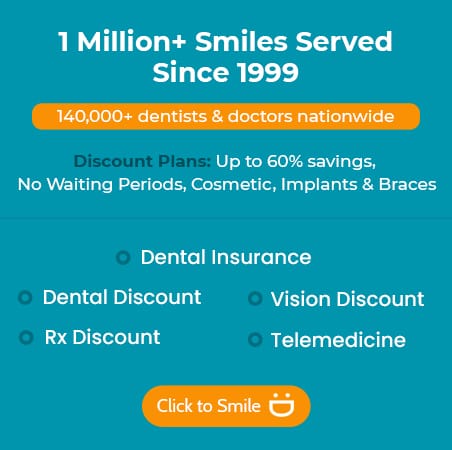WHO NEED INSURANCE ?
Your family will always come first; you wouldn't want them to have to bear the financial burden of your last days. No matter what your age, it`s always good to have a plan as to how you intend to cover these costs. Final expense insurance will pay for your funeral service and other associated costs.
Your standard of living is important to you. Should you be taken ill or suffer mobility problems further down the road, we want you to lead the most comfortable life you possibly can. Long term care insurance makes this possible. It also lifts the burden of care from those around you, improving the standard of living for everyone you hold dear.
We know about the benefits and pitfalls of group versus single insurance policies; employer sponsored health plans; term versus whole life and other insurance `gray areas` that customers often wish to better understand. Please don`t hesitate to call us with your questions, no matter whether you are a valued customer, a potential one, or if you simply need advice.
Understanding Different Types of Insurance: Term Life, Whole Life, Keyman Insurance, and Obamacare
Insurance can be a complex topic, but understanding the various types available can help you make informed decisions for your financial security and health. This article breaks down some important types of insurance: term life insurance, whole life insurance, keyman insurance, and Obamacare.
1. Term Life Insurance
Features:
- Coverage Duration: Provides coverage for a specified term, usually 10, 20, or 30 years.
- Premiums: Generally lower than whole life insurance because it doesn’t build cash value.
- Death Benefit: Pays a death benefit to beneficiaries if the insured dies within the term.
- Renewal Option: Some policies offer the option to renew or convert to a whole life policy.
Benefits:
- Affordability: Ideal for those on a budget, providing high coverage at lower premiums.
- Simplicity: Straightforward and easy to understand, making it accessible for many people.
- Financial Protection: Provides essential financial security for dependents, covering expenses like mortgages, education, and living costs.
2. Whole Life Insurance
Features:
- Permanent Coverage: Offers lifelong coverage as long as premiums are paid.
- Cash Value: Accumulates cash value over time, which can be borrowed against or withdrawn.
- Fixed Premiums: Premiums typically remain the same throughout the life of the policy.
Benefits:
- Lifelong Security: Ensures your loved ones are protected no matter when you pass away.
- Investment Component: The cash value can serve as a savings or investment vehicle.
- Predictable Costs: Fixed premiums make budgeting easier over the long term.
3. Keyman Insurance
Features:
- Business-Specific: Designed to protect businesses from the loss of a key employee.
- Policy Ownership: The business owns the policy and pays the premiums, with the business as the beneficiary.
- Coverage Amount: Typically based on the key employee's contribution to the company.
Benefits:
- Financial Stability: Helps cover potential lost revenue and expenses during the transition period after losing a key employee.
- Attracts Investors: Shows potential investors that the business is prepared for unforeseen circumstances.
- Employee Retention: Can be used to provide additional benefits to key employees, enhancing job satisfaction and loyalty.
4. Obamacare (Affordable Care Act)
Features:
- Health Coverage Expansion: Aims to provide affordable health insurance options to a larger population.
- Marketplace: Established health insurance marketplaces where individuals can compare plans.
- Subsidies: Offers financial assistance to lower-income individuals and families to help make coverage affordable.
- Essential Health Benefits: Requires insurance plans to cover a set of essential health benefits, including preventive care, maternity care, and mental health services.
Benefits:
- Increased Access: Millions of previously uninsured individuals gained access to health care.
- Pre-existing Condition Coverage: Prohibits insurance companies from denying coverage based on pre-existing conditions.
- Preventive Care: Encourages preventive services without out-of-pocket costs, leading to better overall health outcomes.
You said:
Features:
- Trip Cancellation: Covers non-refundable expenses if you need to cancel your trip due to unforeseen circumstances.
- Medical Coverage: Provides health insurance for medical emergencies that occur while traveling.
- Baggage Protection: Covers loss, damage, or delay of personal belongings during your trip.
- Emergency Evacuation: Covers costs associated with emergency transportation to a medical facility.
Benefits:
- Financial Protection: Helps mitigate potential losses due to cancellations, medical emergencies, or lost belongings.
- Peace of Mind: Allows travelers to enjoy their trips knowing they are protected against unexpected events.
- Assistance Services: Often includes 24/7 support for travelers facing emergencies, making it easier to navigate crises abroad.
6. Disability Insurance
Features:
- Income Replacement: Provides a percentage of your income if you are unable to work due to illness or injury.
- Short-term vs. Long-term: Short-term policies typically cover disabilities for a few months, while long-term policies can extend for years or until retirement age.
- Definition of Disability: Policies may vary in how they define disability, impacting eligibility for benefits.
Benefits:
- Financial Security: Helps maintain your lifestyle and cover essential expenses while you are unable to work.
- Protection Against Uncertainty: Offers peace of mind that you’ll have financial support in case of unexpected health issues.
- Customizable Coverage: Options to tailor policies based on occupation, income level, and specific needs.
7. Dental Insurance
Features:
- Preventive Care: Covers routine check-ups, cleanings, and X-rays at little or no cost.
- Basic and Major Services: Includes coverage for fillings, extractions, crowns, and other necessary procedures.
- Annual Maximums: Policies often have an annual limit on how much they will pay for dental services.
Benefits:
- Encourages Regular Care: Makes preventive care affordable, promoting better oral health.
- Cost Savings: Reduces out-of-pocket expenses for necessary dental treatments.
- Access to Networks: Many plans provide access to a network of dentists, often with negotiated rates.
Medicare Advantage Plans vs. Original Medicare
Medicare is a federal health insurance program primarily for individuals aged 65 and older, as well as certain younger people with disabilities. There are two main ways to receive Medicare benefits: Original Medicare and Medicare Advantage Plans. Here’s a detailed comparison between the two.
Medicare Advantage Plans
Description: Medicare Advantage (MA), also known as Part C, is an alternative way to receive Medicare benefits through private insurance companies approved by Medicare. These plans provide all the benefits of Original Medicare (Parts A and B) and often include additional coverage.
Features:
- Comprehensive Coverage: Includes hospital insurance (Part A) and medical insurance (Part B). Many plans also include prescription drug coverage (Part D) and additional benefits like vision, dental, and hearing care.
- Network Restrictions: Many MA plans have a network of doctors and hospitals. You may need to use network providers to get the full benefits.
- Out-of-Pocket Maximum: Medicare Advantage plans have a limit on your out-of-pocket expenses for covered services, providing a cap on what you might pay in a given year.
- Plan Variability: Plans can vary significantly in terms of coverage, costs, and provider networks.
Benefits:
- Cost Predictability: The out-of-pocket maximum provides a safety net against high medical expenses.
- Additional Benefits: Many plans offer services not covered by Original Medicare, making them appealing for those needing extra care.
- Integrated Care: Coordinated care can improve management of health services.
Original Medicare
Description: Original Medicare consists of two parts: Part A (hospital insurance) and Part B (medical insurance). It is managed by the federal government.
Features:
- Flexibility: You can visit any doctor or hospital that accepts Medicare, without needing referrals.
- No Network Restrictions: There are no network limitations, giving you broader access to healthcare providers.
- Separate Prescription Coverage: Original Medicare does not include prescription drug coverage, which must be obtained separately through a Part D plan.
- No Out-of-Pocket Maximum: There is no limit on out-of-pocket expenses; beneficiaries are responsible for a percentage of their medical costs.
Benefits:
- Broad Provider Access: Flexibility to choose any healthcare provider who accepts Medicare.
- Simplicity: Standardized benefits across the country make it straightforward to understand.
- No Prior Authorization: Generally, there’s less bureaucracy involved in accessing care compared to some Advantage plans.
Comparison Summary
| Feature/Aspect | Medicare Advantage | Original Medicare |
|---|
| Coverage | Includes Parts A, B, and often D, plus additional benefits | Includes Parts A and B; separate Part D for prescriptions |
| Provider Network | Usually requires using network providers | No network restrictions |
| Out-of-Pocket Maximum | Yes, capped limit on expenses | No cap on expenses |
| Flexibility | Less flexible; may need referrals | More flexible; direct access to any provider |
| Cost Structure | Monthly premiums + copayments, often includes additional benefits | Deductibles and coinsurance for services; separate drug plan costs |
| Additional Benefits | Often includes vision, dental, and wellness services | Typically not covered; must purchase separately |
Conclusion
Choosing between Medicare Advantage and Original Medicare depends on individual healthcare needs, preferences for provider access, and cost considerations. Medicare Advantage may offer additional benefits and cost predictability, while Original Medicare provides greater flexibility and wider provider access. It's important to evaluate your healthcare needs, financial situation, and preferences when deciding which option is best for you. Consulting with a Medicare advisor can also provide personalized insights based on your circumstances.
Understanding the features and benefits of different types of insurance is crucial for making informed decisions that can protect your financial future and health. Whether you’re looking for life insurance to secure your family’s future, keyman insurance to safeguard your business, or health coverage through Obamacare, each option serves unique needs. Assess your circumstances and consult with an insurance professional to determine the best fit for you.



























